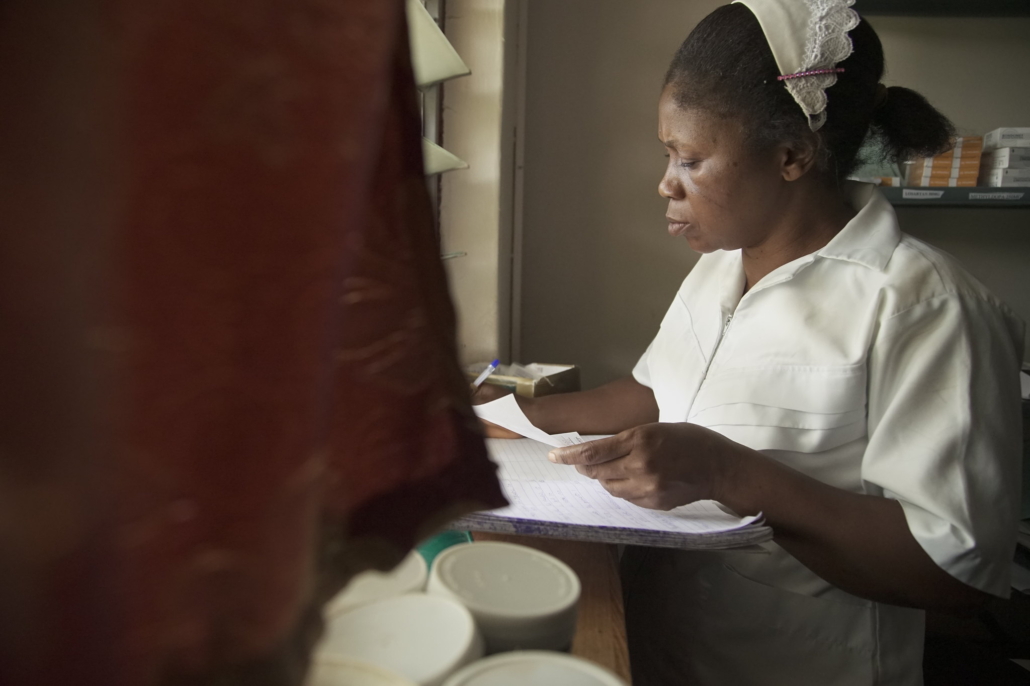Improving Access to Health Care for Marginalized Groups in Nigeria

Nigeria, despite its significant economic potential, faces severe health care challenges, particularly in marginalized communities. About 40% of Nigerians live in poverty, limiting their access to quality health care services. Addressing these disparities is critical to improving access to health care for marginalized groups in Nigeria.
Barriers to Health care Access
- Insufficient Primary Health Centers (PHCs): In rural communities where disease burden is high, many primary health centers (PHCs) are either non-functional or under-equipped. This is a significant barrier, as PHCs are the main access points for health care in rural areas. The absence of functioning PHCs means that patients either go without care or must travel long distances, often to urban areas, to receive treatment.
- Out-of-Pocket Payments: Around 90% of Nigerians pay for health care services out of pocket, placing an enormous financial burden on poor families. This creates a cycle where poverty exacerbates poor health, and poor health leads to further poverty. According to the International Journal of Health and Management, catastrophic health expenditures have driven many households deeper into poverty. Only about 3% of Nigeria’s population has health insurance, and most of this coverage is employer-provided, leaving low-income earners and rural populations particularly vulnerable.
- Corruption and Mismanagement: Corrupt practices, which drain resources meant for public health facilities, worsen the inefficiency of Nigeria’s health care system. Funds intended for PHCs and other health services are often misappropriated, resulting in dilapidated facilities and a lack of essential medications and staff.
Here are some strategies for improving health care access.
Mobile Health Clinics
Bringing health care directly to communities is one effective solution to overcome physical barriers. Mobile health clinics and telemedicine services allow health care providers to reach remote or rural populations, reducing the need for travel and ensuring that patients receive care without excessive costs. For example, in states like Kaduna and Lagos, the government, in partnership with non-governmental organizations, has deployed mobile health units to provide essential health services such as maternal care, vaccinations and treatment for common diseases like malaria and tuberculosis. These clinics travel to remote areas, reaching populations that lack access to functioning PHCs.
This directly tackles the issue of insufficient primary health centers and ensures health care is more accessible, improving access to health care for marginalized groups in Nigeria. Mobile clinics have proven effective in bridging the gap in healthcare delivery by providing both preventive and curative services to Nigeria’s rural and underserved populations.
Insufficient Primary Health Centers
To tackle the lack of functioning PHCs, Nigeria must prioritize their revitalization. Strengthening these facilities can significantly improve access to health care for rural populations as they are the first point of contact for most vulnerable populations.
The Basic Health care Provision Fund (BHCPF), a key initiative under the 2014 National Health Act, aims to ensure every Nigerian has access to a minimum package of health care services, particularly at the primary care level.
However, inconsistent funding and state-level delays in implementation have limited its effectiveness. Ensuring that states contribute their share of the funds and improving oversight are essential to making the BHCPF work.
Expanding Micro Health Insurance
To reduce the reliance on out-of-pocket payments, micro health insurance has emerged as a solution tailored to the needs of low-income populations.
Providers like WellaHealth offer affordable packages that cover common illnesses such as malaria and typhoid, with access to doctors through telemedicine. These insurance models are particularly promising for rural and underserved communities, offering a pathway to affordable health care without the risk of financial ruin. They are part of the key to improving access to health care for marginalized groups in Nigeria.
Addressing Corruption
Tackling corruption in the health care system is critical. Strengthening governance, improving transparency in the disbursement of health care funds, and increasing community oversight are necessary steps to ensure that resources intended for health care reach the people who need them most.
Improving access to health care for marginalized groups in Nigeria requires a multi-faceted approach that addresses the key barriers of insufficient primary health centers, out-of-pocket payments and systemic corruption. Strengthening primary health facilities, expanding micro health insurance, deploying mobile health clinics, and enhancing governance are critical steps toward ensuring equitable healthcare access. By prioritizing these strategies and ensuring proper implementation, significant progress can be made towards improving access to healthcare for marginalized groups in Nigeria.
– Edzhe Miteva
Edzhe is based in London, UK and focuses on Global Health and Politics for The Borgen Project.
Photo: Flickr
